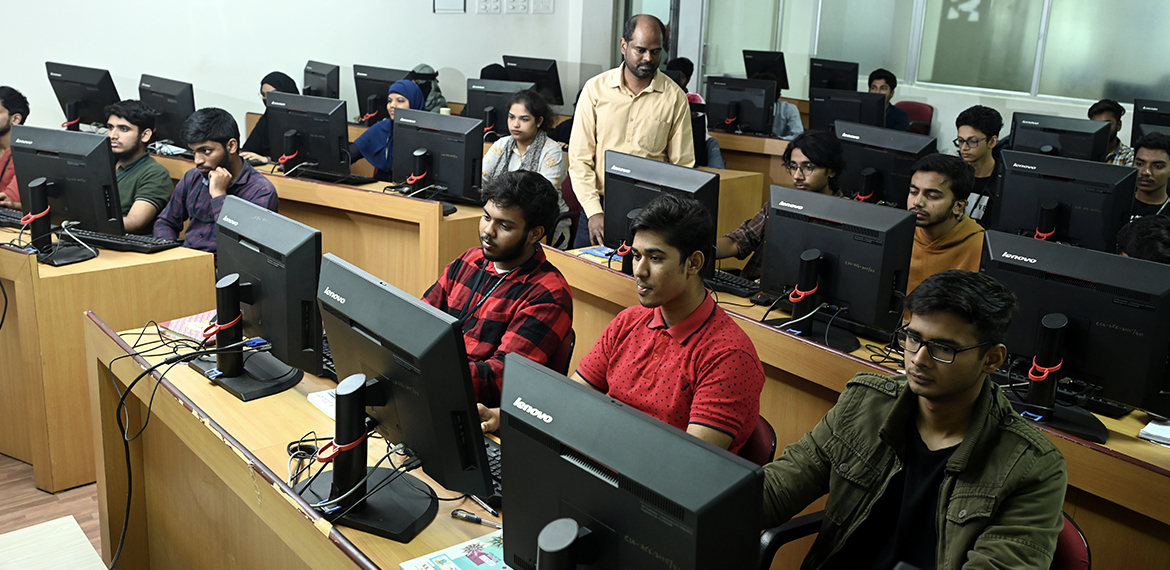About the Course
Established in the year 2020, the CS&AI Department offers a 4-Year B.E- (AI & DS) Degree course that started with an annual intake of 60 students, and it was increased to 120 students from the year 2022 onwards.
Artificial Intelligence and Data Science (AI & DS) is an interdisciplinary field that combines Computer Science, Mathematics and Statistics to create intelligent systems that can learn from data. Data Science consists of various statistical techniques whereas Artificial Intelligence (AI) systems use intelligent processing algorithms such as deep learning to work on merging massive sets of data to automate predictive analytics.
The main objective of this course is to provide students with knowledge that deals with scientific methodologies and techniques drawn from domains like statistics, cognitive science, computing, and information science. This programme is designed to train graduates in emerging technologies required to build intelligent systems with statistical insights. The programme will also enable students to apply AI, Natural Language Processing, Deep Learning to develop smart machines and systems that can emulate human understanding to make predictions, analyze large datasets, and automate processes etc.
The BE programme in AI & DS is designed to provide the foundations for job roles like Data/Analytics Manager, Data Architect, Data Analyst, Data Engineer, Data Scientist, Data Storyteller, AI Engineer, AI Developer, Business Intelligence Engineer, Statistician, Database Administrator, Software Developer/Engineer, etc., in the evolving job market scenario.
Vision
To contribute competent Computer Science and Artificial Intelligence professionals to the global talent pool to meet the constantly evolving societal needs.
Mission
Mentoring students towards a successful professional career in a global environment through quality education and soft skills in order to meet the evolving societal needs.
